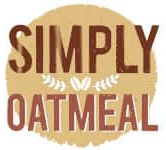Being a breastfeeding mama is an amazing but demanding journey. You are constantly nourishing your little one, and that means you need to be nourishing yourself too! Finding quick, easy, and healthy meals can be tough, but that’s where overnight oats for breastfeeding come in.
Learn more about Overnight Oats Health Benefits!
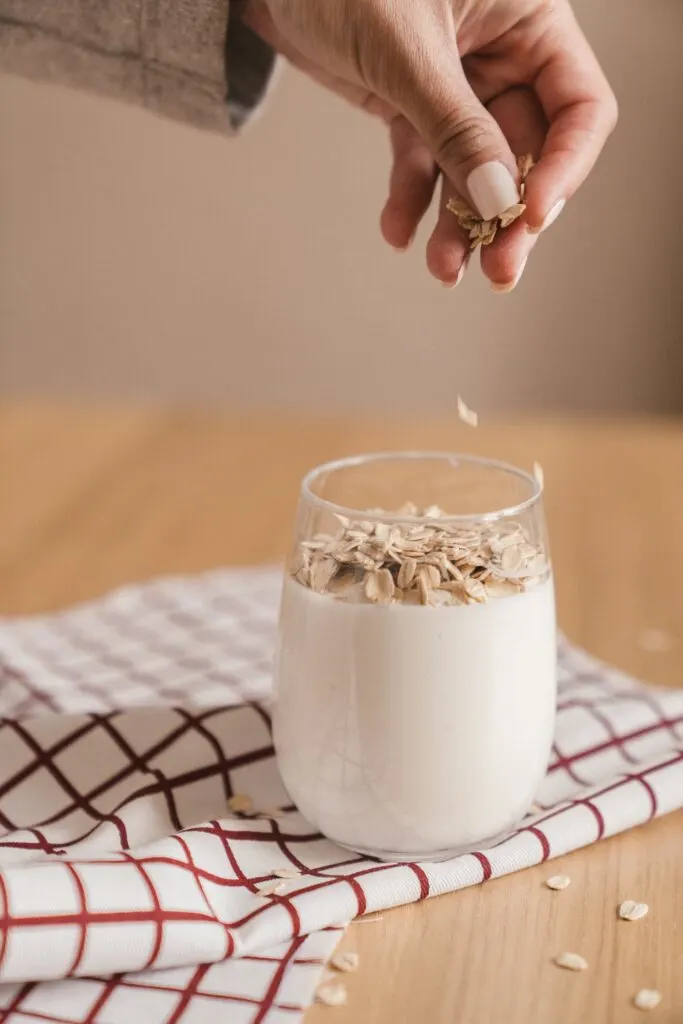
Overnight oats are a lifesaver for busy mamas. They’re simple to make the night before, so you can grab and go in the morning. They’re also packed with nutrients that are essential for both you and your baby. Oats are a good source of complex carbs, fiber, and protein, which will keep you feeling full and energized. They’re also rich in vitamins and minerals, like iron and calcium, which are important for postpartum recovery and milk production.
Why Overnight Oats are Ideal for Breastfeeding Moms
Quick and Easy: Overnight oats require minimal prep time. Simply combine all the ingredients in a jar or container the night before, and voila! Breakfast is ready when you are in the morning. No more scrambling to cook eggs or toast while your baby cries for attention.
Packed with Nutrients: Oats are a whole-grain powerhouse, rich in fiber, protein, and essential vitamins and minerals. They keep you feeling full and satisfied, which is crucial for maintaining your energy levels throughout the day. You can also customize your overnight oats with additional lactation-boosting ingredients like flaxseeds, chia seeds, brewer’s yeast, and fruits like berries and bananas.
Portable and Convenient: Overnight oats can be easily stored in the fridge overnight or even prepped in individual jars for grab-and-go convenience. This makes them perfect for busy mornings or those late-night feedings when you need a quick and healthy snack.
Delicious and Customizable: Overnight oats are incredibly versatile! You can experiment with endless flavor combinations based on your preferences and dietary needs. Add spices like cinnamon or nutmeg for warmth, mix in fresh or frozen fruit for sweetness, or swirl in nut butter for a creamy and protein-rich boost. If you want, heat it up!
Here are some basic tips for making overnight oats:
Use rolled oats for the best texture. Quick oats can become mushy overnight.
Choose your milk wisely. Oat milk, almond milk, or even coconut milk are great options for dairy-free mamas.
Add sweetness if desired. Honey, maple syrup, or even mashed dates are natural sweeteners that won’t spike your blood sugar.
Get creative with toppings! Fresh fruit, nuts, seeds, and even a drizzle of dark chocolate can take your overnight oats to the next level.
Best milk boosters to add to overnight oats for lactation
While there’s no magic bullet for increasing milk supply, several ingredients can be added to overnight oats for breastfeeding to potentially support lactation:
Galactagogues: These are food or herbs believed to promote milk production. While research is still ongoing, some of the most popular galactagogues to include in overnight oats are:
Flaxseed meal: Rich in omega-3 fatty acids and lignans, which may stimulate milk production. Add 1-2 tablespoons ground flaxseed.
Brewer’s yeast: A good source of B vitamins and protein, which may be beneficial for lactation. Start with 1 tablespoon and adjust if needed.
Fenugreek seed powder: Traditionally used in India to increase milk supply, but the taste can be strong. Start with 1/2 teaspoon and adjust.
Maca powder: Adaptogenic herb said to balance hormones and improve milk production. Use 1/2 teaspoon to 1 teaspoon.
Nutrients: Ensuring adequate calories, fluids, and essential nutrients is crucial for milk production. Consider adding these boosters:
Oats: Opt for steel-cut or rolled oats for their higher fiber and nutrient content compared to instant oats.
Nuts and seeds: Rich in protein, healthy fats, and minerals like zinc and magnesium, which support lactation. Add almonds, walnuts, pumpkin seeds, or chia seeds.
Fruits and vegetables: Provide vitamins, minerals, and antioxidants. Berries, mango, sweet potato, and leafy greens are excellent choices.
Milk: Choose fortified dairy or plant-based milk alternatives rich in calcium and vitamin D.
Additional Tips:
Stay hydrated by drinking plenty of water throughout the day.
Get enough rest and practice stress management techniques.
Seek professional advice from a lactation consultant if you have concerns about your milk supply.
Remember: Everyone responds differently to these boosters. It’s essential to listen to your body and adjust ingredients based on your preferences and tolerance. It’s also important to note that some herbs and foods may interact with medications, so always consult your doctor before trying any new galactagogues.
Here are some delicious overnight oats recipes for breastfeeding:
Chocolate Peanut Butter: Combine oats, milk, peanut butter, cocoa powder, honey, and a pinch of salt. Top with banana slices and chopped peanuts.
Berry Bliss: Mix oats, milk, chia seeds, vanilla extract, and honey. Top with a variety of fresh berries and a drizzle of yogurt.
Tropical Twist: Blend oats, coconut milk, mango chunks, pineapple pieces, and ginger. Top with chopped toasted almonds and coconut flakes.
Pumpkin Spice: Combine oats, milk, pumpkin puree, cinnamon, nutmeg, and maple syrup. Top with roasted pumpkin seeds and a dollop of whipped cream.
Enjoy your delicious and nutritious overnight oats for breastfeeding as you fuel your body and nourish your little one!
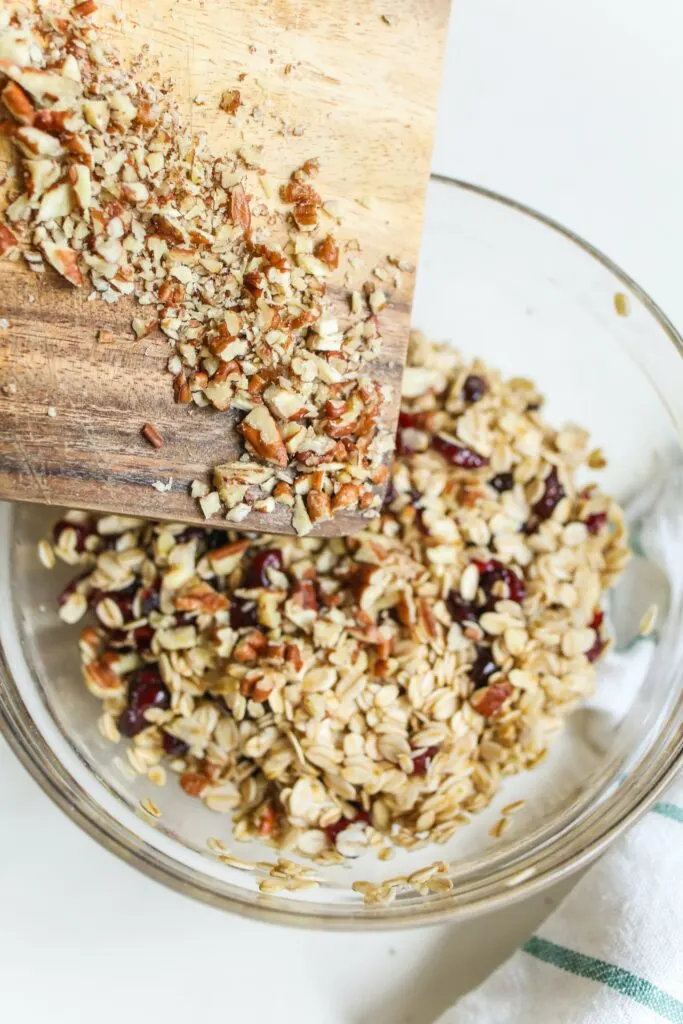
Postpartum Weight Loss While Breastfeeding
Postpartum weight loss while breastfeeding can be a unique and challenging experience. While breastfeeding burns around 500-700 extra calories per day, leading to weight loss for some, not everyone experiences it the same way. Here’s some information to help you navigate this:
Things to remember:
Focus on health, not weight: Prioritize your overall health and well-being, not just a specific number on the scale. A gradual and healthy approach is best, aiming for 1-2 pounds per month loss.
Listen to your body: Pay attention to hunger cues and avoid calorie restriction, as it can impact your milk supply and overall health. Aim for at least 1800 calories per day.
Consult your doctor: Discuss your weight loss goals with your doctor to ensure a safe and personalized approach.
Seek professional guidance: Consider consulting a registered dietitian or lactation consultant for personalized dietary advice and breastfeeding support.
Tips for healthy weight loss while breastfeeding:
Diet:
Eat a balanced diet rich in fruits, vegetables, whole grains, and lean protein.
Minimize processed foods, sugary drinks, and unhealthy fats.
Stay hydrated by drinking plenty of water.
Don’t skip meals, but don’t overeat either. These overnight oats for breastfeeding are great to prepare ahead of time.
Choose nutrient-dense snacks like fruits, nuts, and yogurt.
Exercise:
Start slowly and gradually increase intensity and duration as you feel comfortable.
Choose low-impact exercises like walking, swimming, or yoga.
Get at least 150 minutes of moderate-intensity exercise per week.
Make sure to listen to your body and take rest days when needed.
Additional tips:
Get enough sleep: Sleep deprivation can interfere with weight loss hormones. Aim for 7-8 hours of sleep per night.
Manage stress: Stress can also hinder weight loss. Practice relaxation techniques like yoga or meditation.
Be patient: Losing weight gradually and safely while breastfeeding takes time. Celebrate non-scale victories like increased energy and improved mood.
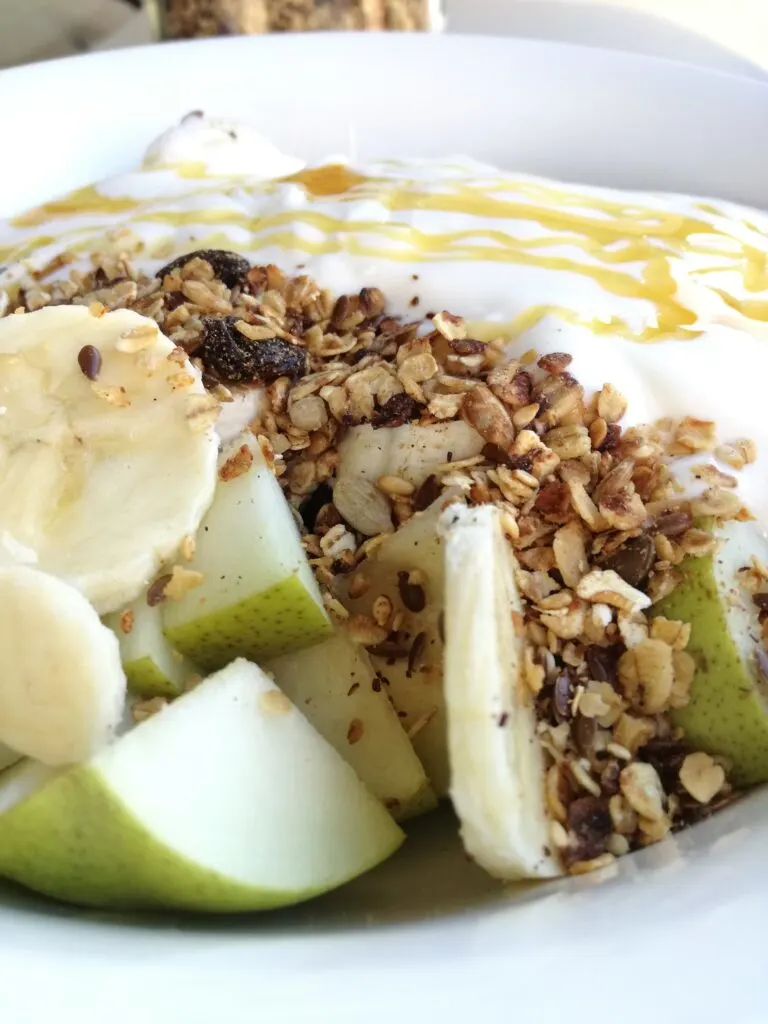
Frequently Asked Questions (FAQs)
Yes, oats can be beneficial for breastfeeding mothers as they are a good source of nutrients, including iron and fiber, which may support lactation.
While there’s anecdotal evidence suggesting that oatmeal may help some breastfeeding women with milk production, scientific studies establishing a direct causation are limited, and individual responses may vary.
Foods that may help increase breast milk supply include oats, fenugreek, fennel seeds, and leafy green vegetables, but individual responses can vary, and it’s important to consult with a healthcare professional for personalized advice.
You May Also Like
- Overnight Oats with Oat Milk
- Overnight Oats with Chia Seeds
- Almond Milk Overnight Oats
- Overnight Oats with Protein Powder
- Overnight Oats with Water
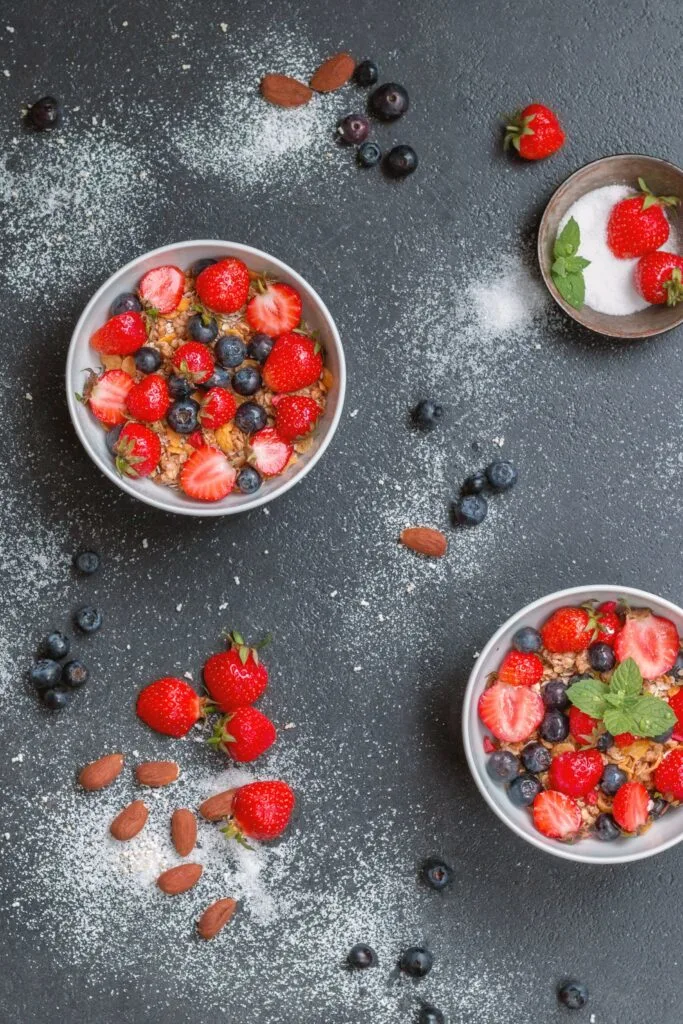
Remember, your journey is unique and what works for one person may not work for another. Don’t compare yourself to others and focus on creating healthy habits that you can sustain for the long term. Overnight oats for breastfeeding may be the right fit for you!
After birth, be sure to check out Oatmeal for Babies and Oat Milk for Babies!
